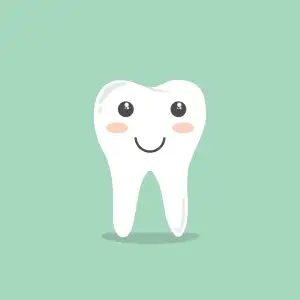Unlocking the Importance of Toothless Smiles in Dental Health and Child Development

A toothless smile, often associated with children losing their baby teeth, holds a special charm and innocence. Baby teeth, also known as primary teeth, play a crucial role in a child's development, aiding in speech development, proper chewing of food, and guiding the permanent teeth into place. However, tooth loss can occur at any age due to various factors such as poor oral hygiene, gum disease, or accidents. Understanding the significance of toothless smiles is essential for maintaining overall dental health and well-being.
Importance of Baby Teeth for Child Development
Baby teeth, also known as primary teeth, play a crucial role in child development. They aid in proper chewing and digestion of food, which is essential for overall health. Additionally, baby teeth help in speech development by assisting children in forming sounds and words correctly. Moreover, these primary teeth hold space in the jaw for the permanent teeth to erupt properly. Neglecting the importance of baby teeth can lead to issues with eating, speaking, and even affect the alignment of permanent teeth later on. Regular dental check-ups for children are vital to ensure that their baby teeth are healthy and developing correctly.
Dental Health Implications of Tooth Loss
Dental health implications of tooth loss go beyond aesthetics. Missing teeth can lead to difficulties in chewing, affecting proper digestion and nutrient absorption. It can also result in shifting of remaining teeth, causing bite misalignment and jaw joint issues. Moreover, tooth loss increases the risk of gum disease and bone deterioration in the jaw. Maintaining good oral hygiene and seeking prompt dental care for missing teeth are crucial to prevent further complications.
Causes of Tooth Loss in Adults
Causes of Tooth Loss in Adults can vary, but the most common reasons include poor oral hygiene leading to gum disease and tooth decay. Other factors such as smoking, diabetes, certain medications, and genetic predisposition can also contribute to tooth loss. Accidents or injuries resulting in trauma to the mouth can lead to the loss of teeth as well. Regular dental check-ups and proper oral care are essential in preventing tooth loss in adults.
Strategies for Maintaining Oral Health Without Teeth
1. Regular dental check-ups are essential even without natural teeth to monitor the health of the gums and any existing dental appliances like dentures or implants.
2. Proper cleaning of dentures or implants is crucial to prevent infections and maintain overall oral hygiene. This includes daily removal, cleaning, and soaking of dentures as recommended by a dentist.
3. Consuming a balanced diet rich in vitamins and minerals is key for maintaining healthy gums and preventing further oral health issues. Avoiding sugary foods and beverages can also help prevent decay in any remaining teeth or around dental appliances.
4. Practicing good oral hygiene habits such as regular brushing of the tongue, roof of the mouth, and inside cheeks can help remove bacteria that can lead to bad breath or other oral health problems.
5. Staying hydrated by drinking plenty of water throughout the day helps keep the mouth moist, which is important for overall oral health and comfort when wearing dental appliances.
By following these strategies, individuals without natural teeth can still maintain good oral health and enjoy a healthy smile for years to come.
Impact of Toothless Smile on Self-Confidence
The impact of a toothless smile on self-confidence can be significant, affecting social interactions and overall well-being. Studies have shown that individuals with missing teeth may experience feelings of embarrassment, low self-esteem, and even depression. A smile is often one of the first things people notice about each other, and a complete set of teeth plays a crucial role in conveying confidence and positive self-image. Seeking dental solutions such as dentures or implants can help restore not only the functionality of teeth but also boost self-confidence and improve quality of life.
In conclusion, toothless smiles play a crucial role in both dental health and child development. It is essential to prioritize oral hygiene from a young age to prevent tooth loss and maintain overall well-being. Regular dental check-ups, proper brushing, flossing, and a balanced diet are key factors in promoting healthy smiles.
To ensure optimal oral health without teeth, individuals should consider options such as dental implants, bridges, or dentures. These solutions can help restore functionality and aesthetics while preventing further complications.
Moreover, boosting self-confidence for those with toothless smiles is vital. Embracing one's unique smile and seeking support from dental professionals can enhance self-esteem and overall quality of life.
Overall, maintaining good oral hygiene practices and seeking timely dental care are essential for achieving healthy smiles at every stage of life. Remember, a healthy smile is not just about appearance but also reflects your overall health and well-being.
Published: 03. 04. 2024
Category: Health



